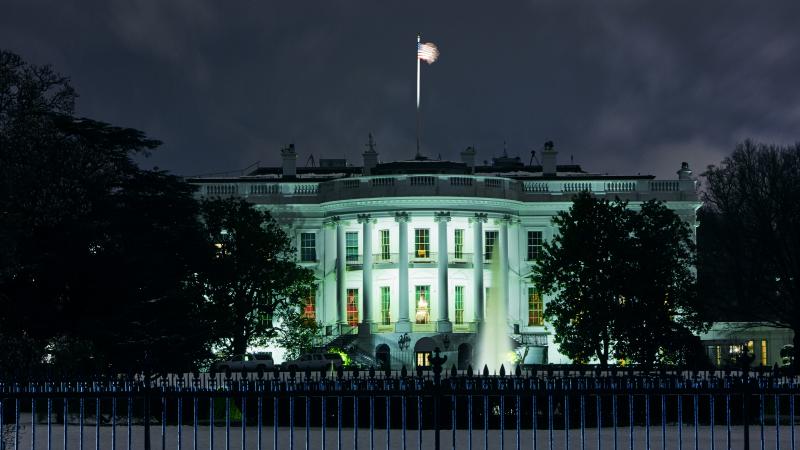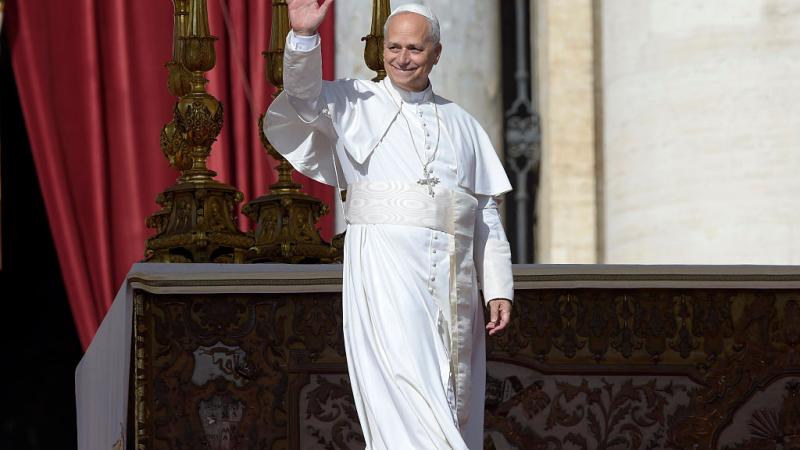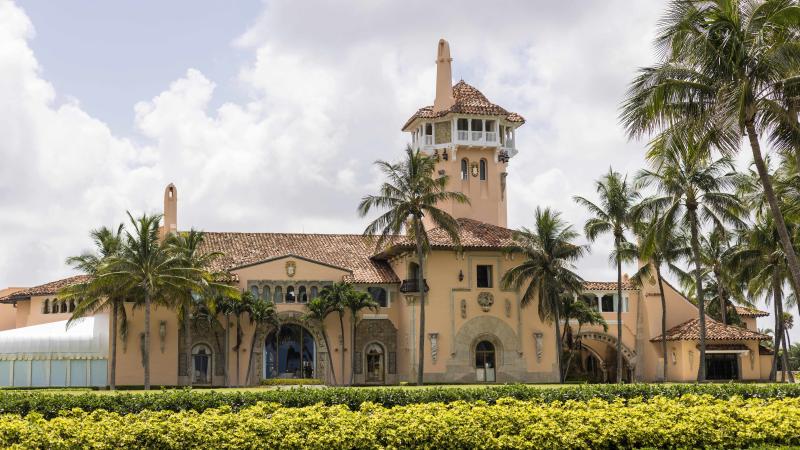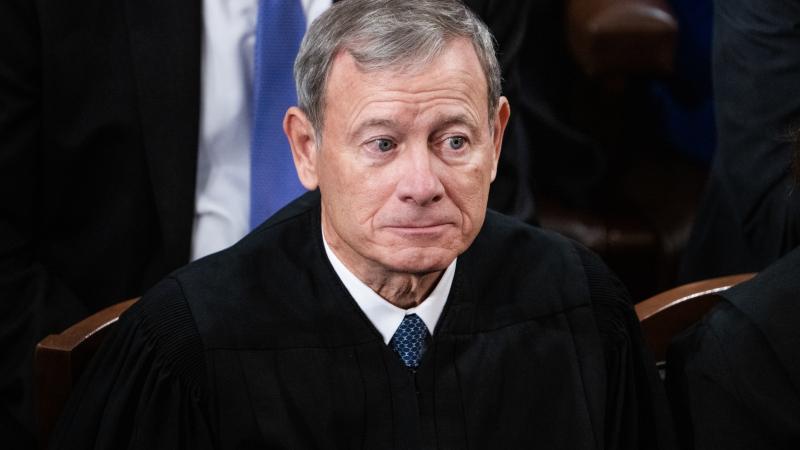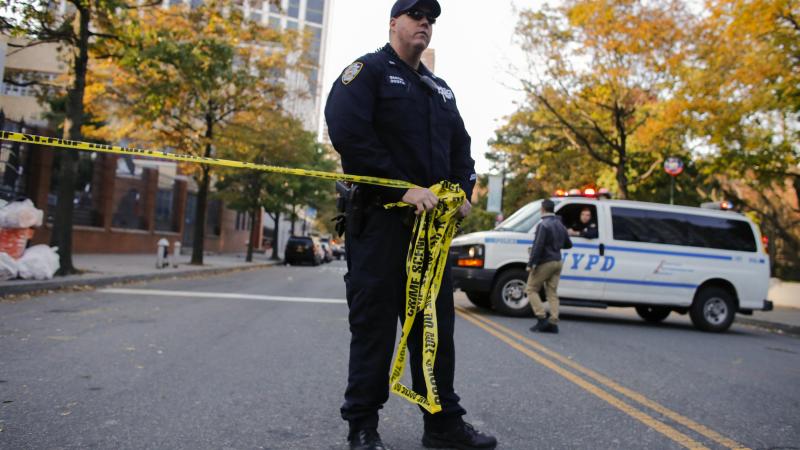As Trump calls on Americans to pray, DOJ argues against evangelist arrested for public preaching
Feds worry that letting plaintiffs who were never incarcerated sue for civil rights violations could endanger their own cases. Australian province says 'conversion therapy' prayer is criminal, while Quebec wants to ban all public prayer.
As English-speaking liberal democracies criminalize religious expression in public or propose to do so, President Trump is calling on one million Americans to pray an hour each week for their country ahead of its 250th birthday, with his White House rebuking the media portrayal of the nonsectarian "America Prays" initiative as a form of "Christian nationalism."
Trump's Justice Department is sounding a dissonant note, however, by urging the Supreme Court to limit the relief sought by a Christian evangelist who was arrested and fined for preaching the gospel outside the boundaries of a remote "protest" zone in the Bible Belt.
The government's filing in Gabriel Olivier's lawsuit against Brandon, Mississippi, which SCOTUS will hear this term, is the only one among more than a dozen friend-of-the-court briefs, most of them filed Tuesday, that is not "in support of" the convicted evangelist.
A 5th U.S. Circuit Court of Appeals panel misread the SCOTUS precedent Heck by blocking Olivier's challenge to the city's protest ordinance on the basis that he didn't contest the charge and paid a fine, so the high court should vacate the ruling – which failed to get a full-court rehearing by a single vote – and remand to trial court, DOJ said.
But it opposes Olivier's request to confirm that Heck does not block Section 1983 civil rights claims by plaintiffs like him who were never in custody, claiming that would open Pandora's Box.
"The case could have significant ramifications for when convicted criminals can bring lawsuits alleging constitutional violations," FindLaw wrote when SCOTUS granted Olivier's petition.
It could "affect suits against federal officials or agencies" and undermine "the finality of state convictions and consistency as to state-court judgments," endangering federal criminal cases or sentences "that are predicated on prior convictions under state law," DOJ's brief said.
Olivier's argument "would allow state defendants who were never incarcerated to bring 'a collateral attack on the conviction through the vehicle of a civil suit,' at the risk of creating inconsistent judgments with state courts," DOJ warned the high court, quoting Heck.
Federal courts are required to give "significant deference to state judgments" when a convicted person in custody challenges the conviction, but Olivier's proposal would let federal courts review constitutional claims from a blank slate for those never in custody, ditching "the same deference to state courts," the government said.
Victim of 'utterly bonkers' prosecutorial misconduct needs same help
Five individuals, groups and coalitions that didn't submit briefs supporting Olivier's petition to SCOTUS have filed in his support since the high court agreed to hear the case.
Chike Uzuegbunam, another threatened street evangelist who won a major SCOTUS victory and massive settlement, urged SCOTUS in his brief to "set the record straight" on three decades of confusion on the applicability of Heck to situations like Olivier's.
"The Fifth Circuit’s ruling, if left uncorrected, will close courthouse doors to countless citizens – street preachers, advocates, and ordinary speakers – whose only 'offense' is exercising their constitutional rights," Uzuegbunam said.
The New Orleans-based appeals court seems to have forgotten the Civil Rights Act of 1871, which became Section 1983, "empowered federal courts in part because of the unwillingness of state courts to protect federally guaranteed rights" in the wake of Reconstruction and the Ku Klux Klan's rise, the libertarian Cato Institute wrote in its brief.
The Heck precedent literally applies to "state prisoner[s]," holding they can't use "civil tort actions" to challenge the validity of their criminal judgments, and it has nothing to do with plaintiffs who aren't in custody, Cato said. It was intended to stop prisoners from using Section 1983 "as a loophole to avoid federal habeas exhaustion requirements."
"In the Fifth Circuit, an individual could be convicted for the public expression of his religious faith under a patently unconstitutional law … but have no means to challenge the law’s constitutionality or prevent future prosecutions under it," wrote the Christian Legal Society and Muslim, Jewish and Hindu groups.
The "ironic result" is that religious adherents like Olivier "who have already been prosecuted and thus have suffered the most concrete injury" cannot stop "ongoing or future constitutional violations because it might threaten the earlier conviction," they said. This is especially chilling for those "expressing unpopular religious views."
The libertarian Institute for Justice filed on behalf of Erma Wilson, who is also petitioning SCOTUS to overturn the 5th Circuit's ruling that she cannot sue since-disbarred Texas prosecutor Ralph Petty for his "covert side hustle" as a clerk for the judge overseeing her prosecution, which like Olivier's ended with a suspended sentence.
Since the county hid the "utterly bonkers" violation of due process – a reluctant 5th Circuit panel's words – until her eight-year drug possession sentence expired, "foreclosing any possibility of a habeas claim for it," Section 1983 was Wilson's only remedy for holding Petty, the district attorney and Midland County accountable, the brief says.
Wilson and Olivier "are in the same car: deprived of any federal avenue to vindicate their federal constitutional rights, simply because they’re not incarcerated," yet in the absence of any "statutory roadblock," SCOTUS should overturn the misreading of Heck, Wilson said.
'Forbidding thought itself'
Australian and Canadian provinces are launching legal attacks on public prayers based on their content rather than just their location, as Brandon, Mississippi's protest law does, mimicking their commonwealth sibling United Kingdom' arrests and prosecutions of pro-life activists for silently praying near abortion clinics.
New South Wales Attorney-General Michael Daley confirmed in a recent parliamentary committee hearing that its five-month-old Conversion Practices Ban Act criminalizes praying as a "sustained practice directed to a person with a view to changing their sexual orientation or gender," responding to questions by Liberal MP Susan Carter.
When Carter responded that prayer is "commonly about change of all sorts of things," Daley specified that "pastoral considerations" such as "praying to someone to strengthen them and guide them" was permitted, but not "sitting down to 'pray the gay away.'"
The Daily Declaration said Daley's declaration contradicted "assurances from the law’s supporters" to Christians in the province that their prayer was not restricted.
This summer, NSW's provincial neighbor Victoria judged a doctor guilty of professional misconduct for expressing common conservative Christian beliefs on social media, with his license suspended for six years of the seven-year proceeding.
Secularism Minister Jean-François Roberge of French-speaking Quebec, which shares its motherland's affinity for censoring religious expression, recently said the government will "introduce a bill to strengthen secularism in Quebec, in particular by banning street prayers," though the CBC said he didn't specify how that would be legislated.
"Seeing people praying in the streets, in public parks," as opposed to in churches or mosques, "is not something we want in Quebec," Premier François Legault said in December, calling it a "very clear message to Islamists." The government proposed legislation this spring that would extend its ban on teachers and principals wearing religious symbols to all school staff.
Montreal Archbishop Christian Lépine compared the proposed ban on public prayer to "forbidding thought itself" in an archdiocese statement and op-ed in La Presse, according to the National Catholic Register.
The Facts Inside Our Reporter's Notebook
Links
- one million Americans to pray an hour each week
- White House rebuking the media portrayal
- Christian evangelist who was arrested and fined for preaching
- The government's filing
- SCOTUS will hear this term
- more than a dozen friend-of-the-court briefs
- SCOTUS precedent Heck
- Section 1983 civil rights claims
- FindLaw
- Chike Uzuegbunam
- major SCOTUS victory and massive settlement
- Cato Institute wrote in its brief.
- Christian Legal Society and Muslim, Jewish and Hindu groups
- Institute for Justice filed on behalf of Erma Wilson
- petitioning SCOTUS to overturn the 5th Circuit's ruling
- reluctant 5th Circuit panel's words
- United Kingdom' arrests and prosecutions of pro-life activists
- criminalizes praying as a "sustained practice directed to a person
- The Daily Declaration
- Victoria judged a doctor guilty of professional misconduct
- CBC said he didn't specify how
- extend its ban on teachers and principals wearing
- archdiocese statement
- National Catholic Register
